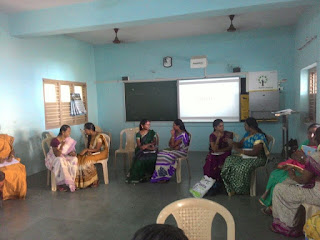How Improving Your Listening Skills Can Ease Conflict
Nonviolent Communication with Listening Skill
happens to be one of the greatest challenges to peace building. This is simple
because of the difficulty of communicating in a way that brings people
together, even when they are in conflict. People often do not like to
listen when they are faced with a problem as they have a tendency to feel that
they are right and their actions are justified. Nonviolent Communication (NVC),
developed over the last twenty years by Marshall Rosenburg and his trainees,
strengthens our ability to respond compassionately to others and to ourselves.
Thus, we use many tools present in NVC in the healing process and activities we
do at ESHKOL. Through its emphasis on deep listening–to ourselves as well as
others–NVC fosters respect, empathy, and a mutual desire to give from the
heart. These skills, which we try to establish in the social circles we create
our center, we emphasize personal responsibility for our actions and the
choices we make when we respond to others. As our earlier post, suggest, when
we carry out service-learning, it is not easy to bring diverse communities
together due to the differences they believe in, so in order to facilitate the
learning in the sessions as well as to create it into a positive learning
process, we develop these skills among our participants. NVC tools guides us as
trainers to help participants reframe how they express themselves by focusing
on observations (free of evaluations), feelings (straight from the heart),
needs, and requests (expressed clearly in positive action language). Heart of a
Giraffe.
The process of NVC as anyone who had followed any of
its’ training would know, it encourages us as humans to focus on: what we are
observing, why each of us are feeling as we do, what our underlying needs are,
and what each of us would like to have happen. How you put this across to the
person is where language and skills are needed. For example, you have a family
member who happens to not switch off the light whenever he leaves his rooms,
which you have noticed for some time. Instead, of directly suggesting that
he/she is always careless/ ignorant (complaining manner) you mention what you
have noticed only, and how you feel about it, and how it’s affecting you and
get the other person to suggest what he is willing to do to change the
situation, instead of you coming up with requests for him to agree with. This
is just one example, to help you understand it in simple terms.
By observing ourselves, we learn to hear our own
deeper needs and those of others and to identify and clearly articulate what we
want in a given moment. When we focus on clarifying what is being observed,
felt and needed, rather than on judging, we discover the depth of our own
compassion- which is what the society lacks at large today. When we are angry
or upset, we often blame others for our problems, just as some people do to the
government for not solving most of their problems. It is important to take responsibility
for our feelings and to acknowledge that all we can ever know is our own
perception. Another individual’s perception will be different than ours. When
we avoid blaming others and accusing them, we are far more likely to transform
the conflict allowing for different points of view. For example: “It is a
lovely evening. and I feel like going out for a walk. I know you don’t like to
go out today as you have a project to work on, but if you are willing to come
with me now, I’d be happy to help you on it when we get back home.” In this
example conversation, you have taken responsibility for meeting your own needs
and have respected the need for others to do the same. Active Listening,
which is listening with an open heart, is a healthy communication method that
can be used to help diffuse any possible hostility.
Would you like a NVC training at your organization?
Club or meeting? Please get in touch with or do write to us for any information
you would like to have for a self- read.



Comments
Post a Comment